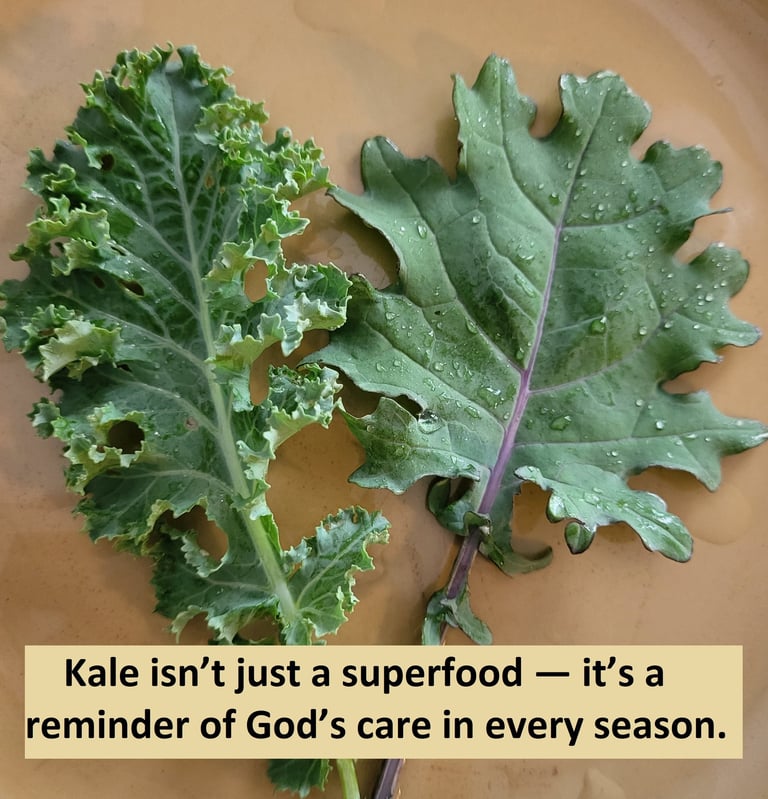Kale, Creation, and the Kindness of God
What does kale have to do with Genesis? More than you might think. This short reflection connects the science of plants with the promises of God.
FAITH & SCIENCE REFLECTIONSCREATION & NATURE STUDIESGOD’S PROVISION IN CREATION
Today, I harvested two types of kale from my garden — Red Russian and Blue Curl. Both belong to the Brassicaceae family, a remarkable group of plants that includes over 4,000 species. As I worked, I couldn’t help but reflect on Genesis chapter 1, where we’re told that God created plants to reproduce “according to their kind.”
God, in His infinite wisdom, created the Brassicaceae family knowing full well what humanity’s future would hold. He knew sin would enter the world, that we would be expelled from the Garden of Eden, and that the earth would no longer be a paradise. Yet, even then, God made provision.
Through the incredible process of meiosis — a form of cell division that allows for genetic variation — He designed these plants to adapt and thrive in a wide range of conditions. Today, Brassicaceae species can be found in environments ranging from cold temperate climates to subtropical zones. They tolerate poor soils, cold temperatures, and varying moisture levels, making them one of the most widespread plant families on earth.
Even in a fallen world, God ensures that we have access to nutrient-rich, resilient plants — “superfoods” like kale, mustard, and cabbage — that nourish our bodies and remind us of His provision. This is a beautiful reflection of God's sustaining grace. Though paradise was lost, He continues to care for His creation and His people, and one day, we will see a restored paradise in the new earth.
Science helps us uncover these beautiful details, pointing us back to a Creator who is both wise and loving.



